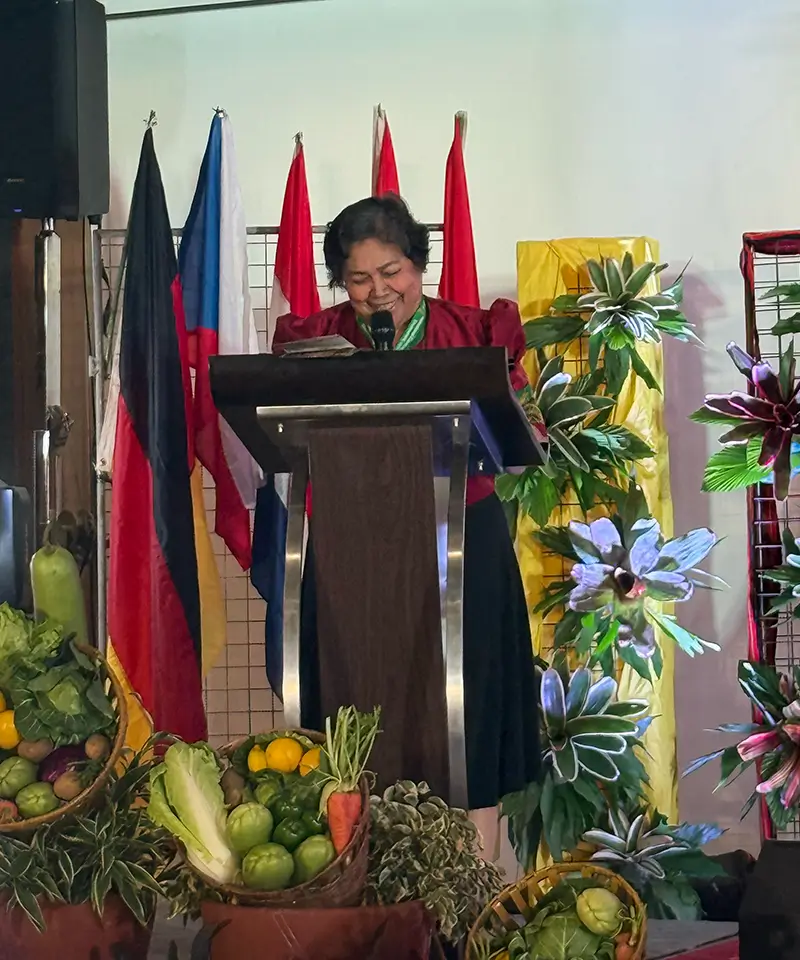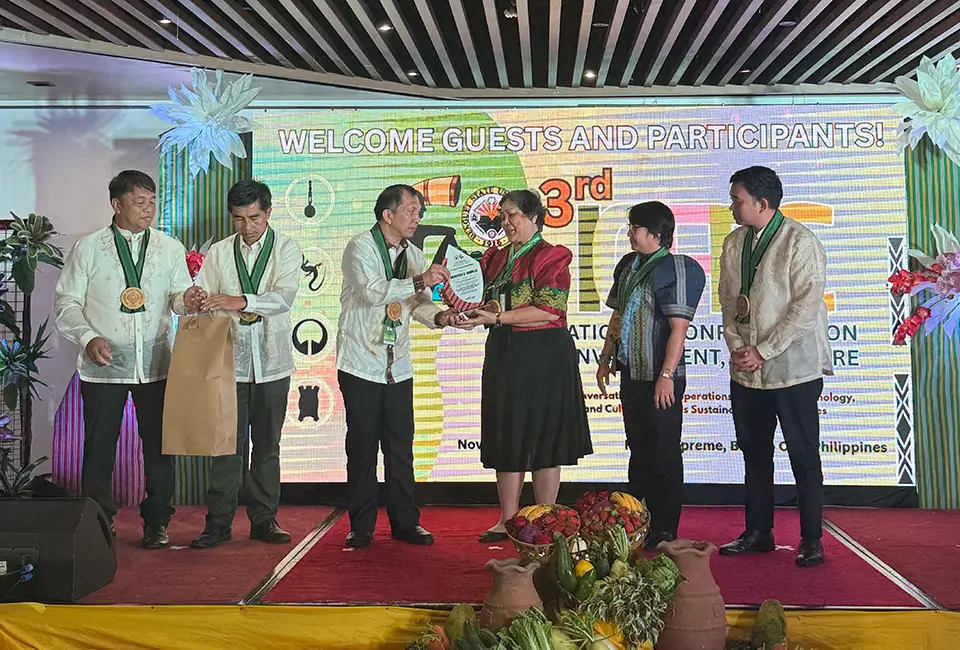BAGUIO CITY, Philippines—At the 3rd International Conference on Food, Environment, and Culture (ICFEC), held on 5–7 November 2025 at the Hotel Supreme, Dr. Mercedita Sombilla, Center Director of the Southeast Asian Regional Center for Graduate Study and Research in Agriculture (SEARCA), called for bold, systemic transformation in Southeast Asia's agrifood sector.
 In her keynote address, Sombilla emphasized the power of the Science-Policy-Practice Interface (SPPI) to bridge research, governance, and grassroots action. She advocated for stronger multi-stakeholder collaboration and dynamic knowledge exchange, introducing the triple nexus approach linking food, environment, and nutrition as a framework for cross-sectoral coordination toward healthier diets and resilient ecosystems.
In her keynote address, Sombilla emphasized the power of the Science-Policy-Practice Interface (SPPI) to bridge research, governance, and grassroots action. She advocated for stronger multi-stakeholder collaboration and dynamic knowledge exchange, introducing the triple nexus approach linking food, environment, and nutrition as a framework for cross-sectoral coordination toward healthier diets and resilient ecosystems.
She discussed SEARCA's integrated approach through flagship initiatives spanning research, policy advocacy, technology incubation, and capacity building. These include: Climate-smart and digital agriculture innovations supported by strategic policy briefs and institutional development; the Safeguarding and Sustaining the Integrity of Halal Food project, which harmonizes halal standards across ASEAN; the Building the Enabling Environment for the Uptake of Modern Agricultural Biotechnology (BUMP-UP Biotech) project, which strengthens biotechnology uptake through evidence-based policy, farmer training, and media engagement; and the Rice Straw Biogas Hub, a scalable model for converting rice straw into bioenergy and value-added products.
Sombilla also highlighted SEARCA's work in inclusive agri-enterprise development, citing value chain initiatives in calamansi and coconut, and introduced the Consortium for Agricultural Policy Research Initiatives (CAPRI), a regional network of high-caliber policy research institutions advancing evidence-based policy for sustainable agriculture.
"Bridging science, policy, and practice is vital for transforming agriculture in Southeast Asia," Sombilla emphasized. "The goal is not just higher yields, but resilient livelihoods, restored ecosystems, and secured nutrition for future generations."

The conference, themed "Global Conversations and Cooperations on Science, Technology, Innovations, and Culture Towards Sustainable Communities," marked a shift from academic outputs to tangible community-level impacts. SEARCA's initiatives under its 12th Five-Year Development Plan: Sustainable Transformation of Agricultural Systems through Innovation in Southeast Asia (SUSTAIN Southeast Asia), embody this shift, championing science-led, culturally attuned solutions for inclusive and sustainable food systems across the region.